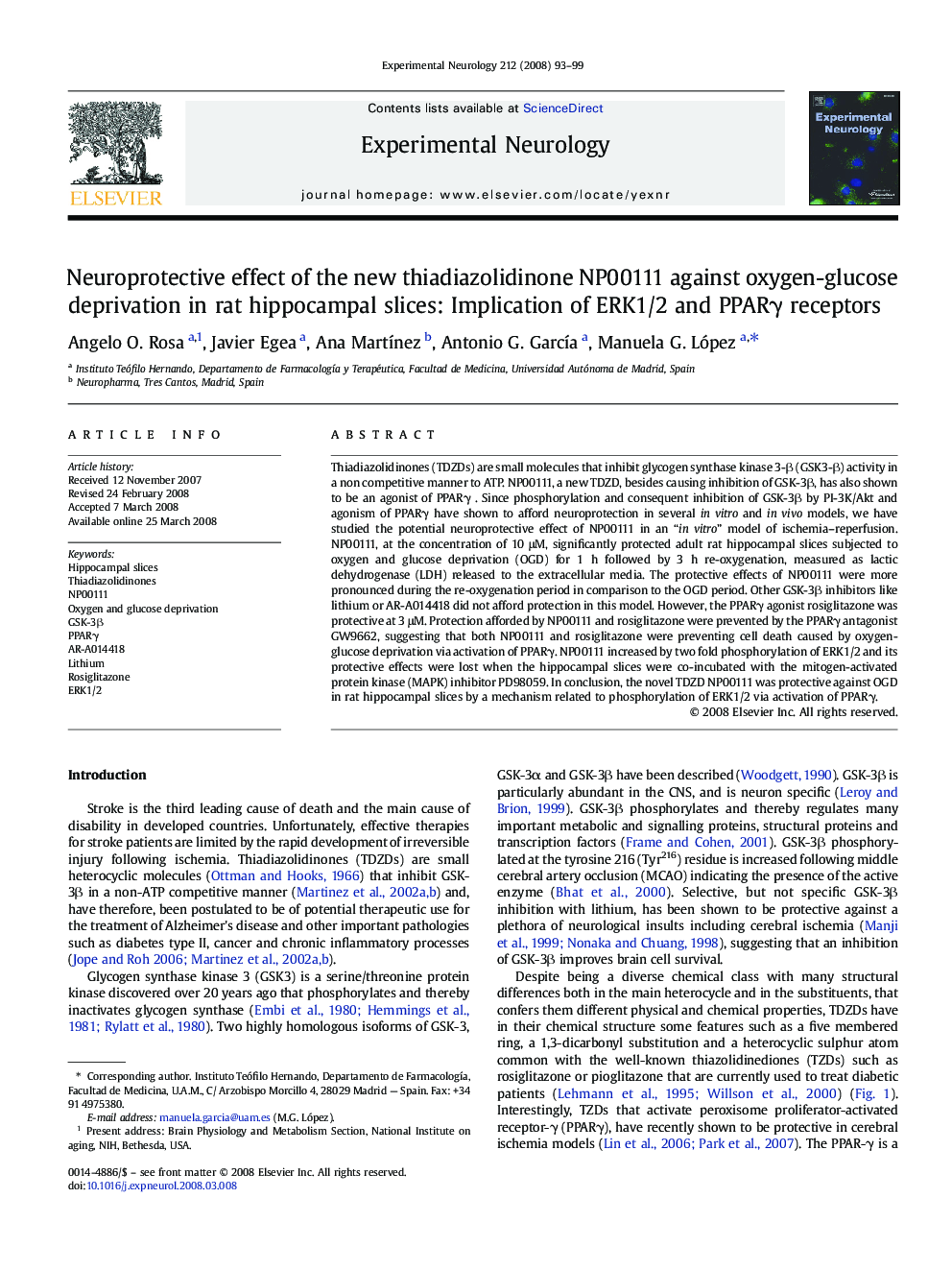| Article ID | Journal | Published Year | Pages | File Type |
|---|---|---|---|---|
| 3056599 | Experimental Neurology | 2008 | 7 Pages |
Thiadiazolidinones (TDZDs) are small molecules that inhibit glycogen synthase kinase 3-β (GSK3-β) activity in a non competitive manner to ATP. NP00111, a new TDZD, besides causing inhibition of GSK-3β, has also shown to be an agonist of PPARγ . Since phosphorylation and consequent inhibition of GSK-3β by PI-3K/Akt and agonism of PPARγ have shown to afford neuroprotection in several in vitro and in vivo models, we have studied the potential neuroprotective effect of NP00111 in an “in vitro” model of ischemia–reperfusion. NP00111, at the concentration of 10 μM, significantly protected adult rat hippocampal slices subjected to oxygen and glucose deprivation (OGD) for 1 h followed by 3 h re-oxygenation, measured as lactic dehydrogenase (LDH) released to the extracellular media. The protective effects of NP00111 were more pronounced during the re-oxygenation period in comparison to the OGD period. Other GSK-3β inhibitors like lithium or AR-A014418 did not afford protection in this model. However, the PPARγ agonist rosiglitazone was protective at 3 μM. Protection afforded by NP00111 and rosiglitazone were prevented by the PPARγ antagonist GW9662, suggesting that both NP00111 and rosiglitazone were preventing cell death caused by oxygen-glucose deprivation via activation of PPARγ. NP00111 increased by two fold phosphorylation of ERK1/2 and its protective effects were lost when the hippocampal slices were co-incubated with the mitogen-activated protein kinase (MAPK) inhibitor PD98059. In conclusion, the novel TDZD NP00111 was protective against OGD in rat hippocampal slices by a mechanism related to phosphorylation of ERK1/2 via activation of PPARγ.
